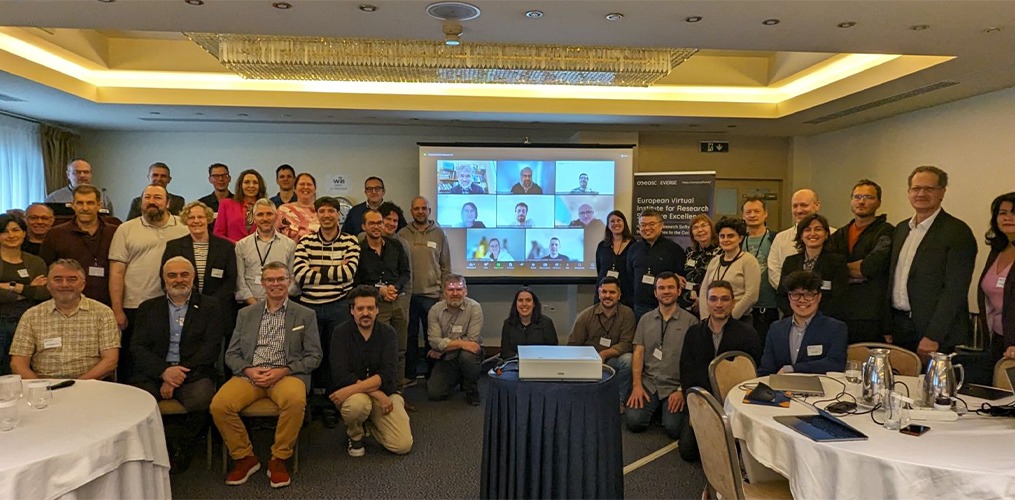
The OSCARS kick-off meeting took place in Thessaloniki from 13 to 15 March. The event brought together the scientific communities of the five Science Clusters and all project partners to define the work plan for the first 12 months of the project. Our CEO, Christos Arvanitidis, attended the meeting.
The OSCARS project stands for Open Science Clusters’ Action for Research and Society. It brings together ESFRI and other world-class research infrastructures organised in five “Science Clusters”:
- ENVRI-FAIR (environmental science)
- EOSC-Life (life science)
- ESCAPE (astronomy and particle physics)
- PaNOSC (neutron and light source science)
- SSHOC (social science and humanities)
These clusters have collaborated over the last four years to enhance the efficiency and productivity of researchers by providing open data services and infrastructures for discovering, accessing, and reusing data.
The event began with a joint meeting of the consortia of two EU Science Cluster-led projects, OSCARS and EVERSE. Members discussed areas of cooperation and planned common activities.
The Science Cluster coordinators described the status of their work and plans for their cluster’s competence centres and virtual Research Environments (VREs) and the benefits of EOSC for their cluster. In the afternoon, mixed groups worked on detailed work plans for Competence Centres and VREs and potential cooperation areas with other projects and initiatives.
The last day was dedicated to the launch of the Open Call for Open Science projects. The Call aims to support researchers involved in open data research projects that promote sharing research data and results based on FAIR principles. Proposals developing services or tools enabling open research and encouraging open science practice are eligible. For more information on the Call, please visit this page: https://oscars-project.eu/oscars-first-open-call.
About the project
The OSCARS project aims to consolidate the accomplishments of the five EOSC projects into long-lasting interdisciplinary services and working practices. In addition, it also seeks to lead in engaging and encouraging the participation of diverse research communities in the European Open Science Cloud (EOSC) by developing innovative open science projects. This goal is to promote the adoption of FAIR-data-intensive research practices across the European Research Area (ERA).